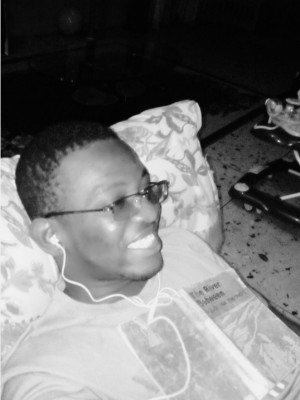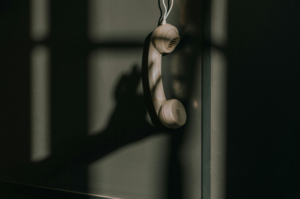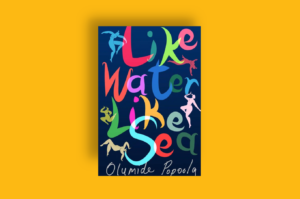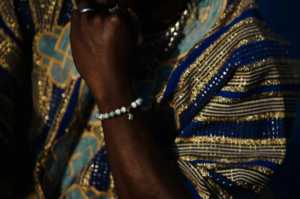 Back then, in secondary school, when we were less judgmental of others and cared less or were naive of the outside world, Mary was my close friend.
Back then, in secondary school, when we were less judgmental of others and cared less or were naive of the outside world, Mary was my close friend.
In the beginning, we never identified as “friends”—just “classmates,” that general name we’d be compelled to use a few years after graduation, after a long period of non-communication.
Mary liked that I smiled a lot and had an innate sense of humour (I often wonder if I still have some left), and I, too, liked that she laughed a lot, even at the teeny-weeny driest joke of all times. We were both undergoing punishment when we first become friends—me doing frog jumps, Mary kneeling on her soft knees, on an afternoon bright and sunny, with the sun playing mock attempts at drawing sweat from our young skins. I misread a sentence in Yoruba. Mary laughed. Her affable laugh was infectious, so I laughed. The gravity of our punishment was increased, but we didn’t care. What was important was this: Mary and I had become good friends.
Mary died on the day on which the sky rumbled over my head.
The news of her death was not like the news of the death of a politician publicly announced on various mass media, or like the news of the death of a loved one transmitted over a long distance through a simple phone call.
The news of Mary’s death was digitised.
It first came to me on BlackBerry Messenger, then on Whatsapp, then on Facebook.
Nobody told me of her death. In fact, I would never have found out, and would I ever be blamed if such news never reached my ears? Of course. Perhaps, I would be accused of modern ignorance, or laughed at, or asked if I live in the 14th century. But for that effortless step of switching on my internet data and wandering around social media and having to read of Mary’s death in this manner:
“R.I.P Mary. May God rst ur soul. We luv u bt God luvs u most.”
“Oh God. Why? Mary, d news of ur deth stil shcks us!”
“She ws a tru gem nd a gud frend. Til we mit again.”
Having read three or more updated statuses like these, I was left in shock.
I messaged a mutual friend to confirm, and she replied thus: “Mary died 2day. They sed she slept nd did nt wke up. It so sad.” On Facebook, there were also well-wishers, bidding their final fare-wells to Mary:
“I don’t knw u in person wen u are alife,but am really touched by al dis comment abt u so so sad am crying reading tru all dis comment,rest in peace u are a great icon”
“May your soul rest in peace. So sad u left us in dis earth. May u continue to sleep in d blossom of thy Lord”
“Gud night frnd may ur soul rest in pafet peace..”
Mary was gone.
In a few minutes of scrolling and clicking and tab closing and screen brightening, my memory recorded a sad truth—the death of Mary. For me, only a few hours of mourning and sober reflections followed. Maybe it was the long distance that fell between Mary and me or those long years of silence. Or was it that effortless discovery of a death that made the loss of a person less appalling? Less seething?
It was the likes—those small thumbs pointing skyward to nowhere—on the Facebook posts about Mary’s death that jarred my mind for days.
Was the death of a person so likeable, deserving a whooping hundred and forty-eight likes? The line under a Facebook post saying, “148 people liked this,” made me wonder: had humans really liked the news of a DEATH or had Mark Zuckerberg created ghoulish robots to serve the purpose of liking DEATHS? (I am a technologist, I know such robots don’t exist; they never will.)
Throughout my thirty-minute perusal of Mary’s timeline on Facebook, it became clear to me that heartbreaking losses like death have been reduced to likes and abbreviated comments. The whole message leapt from the brightened screen of my android phone and punched me right in the face: We now live in a world of likes and abbreviations, no more, no less.
What if Mary were alive today? Would she have enjoyed reading such R.I.P messages typed out in bloated grammar, queer abbreviations, funny emoticons—hints at disrespect, unworthiness?
Would Mary have questioned the fact that the picture used for the obituary and the message attached had amassed an incredible number of likes?
If given a second chance, would Mary have deactivated her Facebook account or would have she accepted to live with the realization that we now live in a world of likes and abbreviations?
End
**********
Post image by mkhmarketing via Flickr.
About the Author
Okafor Emmanuel Tochukwu was born in Lagos, Nigeria. His work has appeared, or is forthcoming, in The Kalahari Review, Bakwa Magazine, African Writer, Flash Fiction Online, StoryMondo, Unbroken Journal, Image Magazine and Pilcrow & Dagger Literary Journal. A participant in the UNIBEN ENL Creative Writing Workshop, he divides his time between Lagos where he resides, and Benin-city where he studies Electrical/ Electronic engineering at the University of Benin. An MTN and Etisalat scholar, he won the Comptroller Charles Edike Prize for Outstanding Essays (2014), a second prize in the Earthplus Essay Competition in celebration of World Environment Day (2015), and a Festus Iyayi’s Award for Excellence for Playwriting (2015). Most recently, three of his stories were shortlisted for the 2015 University of Benin Literary Prize for Poetry and Short Stories. Still looking forward to opening his literary blog, he can be followed on twitter (@phenomenaltoch), or on Instagram (@tochukwu_okafor).










imakuh success December 25, 2015 11:04
woo... its a nice piece... its very rich.. there is a break in communication at some point, the transition of the happy times and her death wasn't all smooth... buh boy, this story is fuller and truer than anything av read in a long time.. you are a great writer...